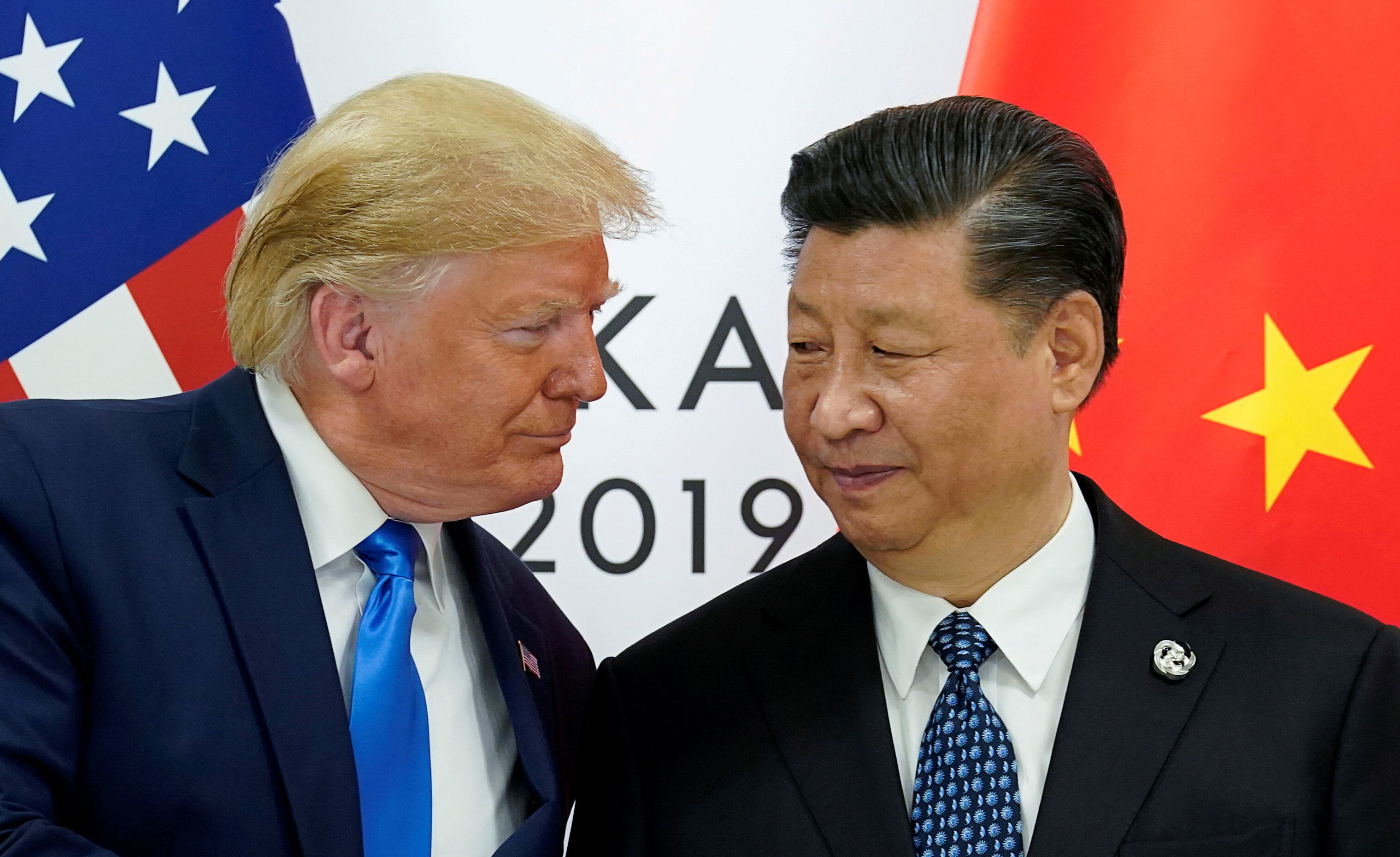News
June 18, 2020
Does Trump support the Uighurs or not? President Trump signed a law Wednesday that would allow the United States to sanction Chinese officials involved in the detainment of that country's Uighur Muslim minority in Xinjiang province, a scheme long deemed to be a gross human rights violation by the United Nations. More than one million Uighurs are believed to have been locked up since 2017 as part of what Beijing describes as a benign "deradicalization campaign," but is widely believed to be a network of internment camps where minorities are held indefinitely without trial. President Trump said the measure is proof that his administration is "tough on China", and Chinese leaders have vowed retaliation. But the signing came on the same day as fresh allegations from former national security adviser John Bolton that Trump had at one point given the green light to Chinese President Xi Jinping to build the Uighur camps and asked for help with his own re-election campaign. The Trump administration says Bolton's claims, which are difficult to prove, are the lies of a "sick puppy."
Maduro tightens the noose around the opposition: It's been well over a year now since most of the world's democracies recognized Venezuelan National Assembly speaker Juan Guaidó as "interim president." But despite that slight, and a deepening social and economic crisis, strongman president Nicolas Maduro remains firmly in power, while Guaidó seems more and more like a spent force. Now Maduro is laying the groundwork to undercut Guaidó further after a Supreme Court packed with regime cronies replaced the heads of two major opposition parties this week, placing them under the control of figures loyal to Maduro. While Guaidó's own party isn't affected, the two parties in question control nearly a third of the National Assembly seats, a major reason why the body remains the only branch of government that is not under Maduro's control. Taken together with last week's move to seat a new electoral commission under the control of Maduro loyalists, it looks like the regime wants to make it nearly impossible for the opposition to keep control over the Assembly in elections that are to be scheduled later this year. Both the US and EU — which recognize Guaidó as the country's legitimate interim president — have condemned the moves, but what are they prepared to do about it?
George Floyd's impact on a verdict in Indonesia: US protests against police brutality and racism have reverberated around the world in many ways, but did they even echo into an Indonesian courtroom? A leader of the decades-old movement for Papuan independence and one of the "Balikpapan Seven" was found guilty of treason this week, for leading 2019 rallies in response to a viral video of Indonesian police using racial slurs against ethnic West Papuan students. But the sentence was only 11 months behind bars, much less than the 17 years demanded by the prosecution. According to one Papuan activist — who spent over 10 years in prison for waving the (banned) Morning Star flag — the judge was influenced by the global anti-racism protests sparked by George Floyd's death.More For You
In this episode of Tools and Weapons, Microsoft Vice Chair and President Brad Smith sits down with Ed Policy, President and CEO of the Green Bay Packers, to discuss how purpose-driven leadership and innovation are shaping the future of one of the world’s most iconic sports franchises. Ed shares how technology and community-focused initiatives, from Titletown Tech to health and safety innovations on the field, are transforming not just the game of football, but the economy and culture of Green Bay itself. He explains how combining strategic vision with investment in local startups is keeping talent in the Midwest and creating opportunities that extend far beyond Lambeau Field.
Subscribe and find new episodes monthly, wherever you listen to podcasts.
Most Popular
Egyptians head to the polls to elect a new parliament during the first round of the Egyptian parliamentary elections in Giza, Egypt, on November 10, 2025.
Photo by Islam Safwat/NurPhoto
Egyptians are voting this month in parliamentary elections that aren’t expected to change who’s in charge, but could allow President Abdel Fattah el-Sisi to rule beyond 2030.
An injured soldier is transferred to a hospital following a clash between Thai and Cambodian troops over a disputed border area in Sisaket Province,Thailand, December 7, 2025.
Royal Thai Army/Handout via REUTERS
Thailand and Cambodia’s ceasefire is on the verge of collapse. Strikes were launched across their disputed border today, following clashes over the weekend that resulted in the death of a Thai soldier.
© 2025 GZERO Media. All Rights Reserved | A Eurasia Group media company.
